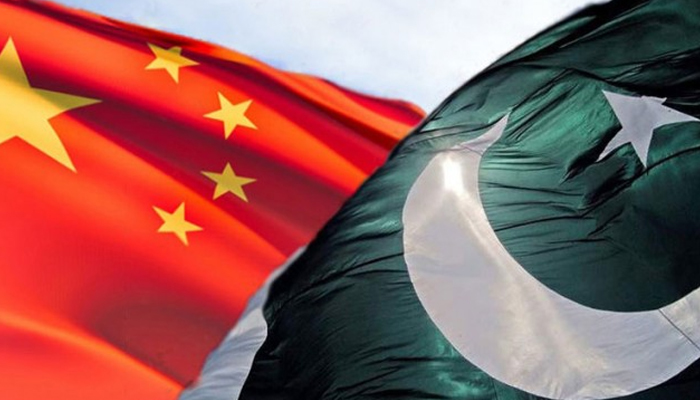PCJCCI seeks chemical partnership
LAHORE: The Pakistan China Joint Chamber of Commerce and Industry (PCJCCI) on Wednesday called for closer collaboration between the two countries in the chemical sector, saying Pakistan can learn from China’s experience and technology to boost its own industry.
The PCJCCI, which aims to promote bilateral trade and investment, said Pakistan has a vast potential in chemical manufacturing and processing, but lacks the technology to produce petrochemical complex facilities or cracking units, which are essential for the development of the industry.
“Our vision is to transform the chemical industry of Pakistan from an import-oriented to an export-oriented industry,” PCJCCI President Moazzam Ghurki said at a think tank session held at the chamber’s secretariat.
He said Pakistan’s chemical industry, which provides inputs for many other sectors such as textiles, agriculture, food and beverages, leather, paper, pharmaceutical, plastics, printing and sugar, needs to build a global reputation of “made in Pakistan” from strength to brand. Fang Yulong, Senior Vice President of PCJCCI, said Pakistan can benefit from China’s growing influence in the field of biochemical industry, which has injected new vitality into the traditional chemical industry and opened up new development directions and insights.
“With the rapid development of biotechnology, the biochemical industry has become a new engine of growth for the chemical industry,” he said, adding that both countries can cooperate in this field to achieve mutual benefits.
Zafar Iqbal, Chairman of the Standing Committee on Chemical Industry of PCJCCI, said Pakistan faces a high demand for chemical products due to its growing economy and population, but also a high dependence on imported oil products, which has affected its national security.
He said China’s successful chemical park model, which provides small and medium-sized enterprises (SMEs) with the necessary resources and facilities, can help Pakistan achieve cluster development and reduce capital and operating expenditures for chemical manufacturers.
-
 Blac Chyna Reveals Her New Approach To Love, Healing After Recent Heartbreak
Blac Chyna Reveals Her New Approach To Love, Healing After Recent Heartbreak -
 Royal Family's Approach To Deal With Andrew Finally Revealed
Royal Family's Approach To Deal With Andrew Finally Revealed -
 Super Bowl Weekend Deals Blow To 'Melania' Documentary's Box Office
Super Bowl Weekend Deals Blow To 'Melania' Documentary's Box Office -
 Meghan Markle Shares Glitzy Clips From Fifteen Percent Pledge Gala
Meghan Markle Shares Glitzy Clips From Fifteen Percent Pledge Gala -
 Melissa Jon Hart Explains Rare Reason Behind Not Revisting Old Roles
Melissa Jon Hart Explains Rare Reason Behind Not Revisting Old Roles -
 Meghan Markle Eyeing On ‘Queen’ As Ultimate Goal
Meghan Markle Eyeing On ‘Queen’ As Ultimate Goal -
 Kate Middleton Insists She Would Never Undermine Queen Camilla
Kate Middleton Insists She Would Never Undermine Queen Camilla -
 Japan Elects Takaichi As First Woman Prime Minister After Sweeping Vote
Japan Elects Takaichi As First Woman Prime Minister After Sweeping Vote -
 King Charles 'terrified' Andrew's Scandal Will End His Reign
King Charles 'terrified' Andrew's Scandal Will End His Reign -
 Winter Olympics 2026: Lindsey Vonn’s Olympic Comeback Ends In Devastating Downhill Crash
Winter Olympics 2026: Lindsey Vonn’s Olympic Comeback Ends In Devastating Downhill Crash -
 Adrien Brody Opens Up About His Football Fandom Amid '2026 Super Bowl'
Adrien Brody Opens Up About His Football Fandom Amid '2026 Super Bowl' -
 Barbra Streisand's Obsession With Cloning Revealed
Barbra Streisand's Obsession With Cloning Revealed -
 What Did Olivia Colman Tell Her Husband About Her Gender?
What Did Olivia Colman Tell Her Husband About Her Gender? -
 'We Were Deceived': Noam Chomsky's Wife Regrets Epstein Association
'We Were Deceived': Noam Chomsky's Wife Regrets Epstein Association -
 Patriots' WAGs Slam Cardi B Amid Plans For Super Bowl Party: She Is 'attention-seeker'
Patriots' WAGs Slam Cardi B Amid Plans For Super Bowl Party: She Is 'attention-seeker' -
 Martha Stewart On Surviving Rigorous Times Amid Upcoming Memoir Release
Martha Stewart On Surviving Rigorous Times Amid Upcoming Memoir Release




